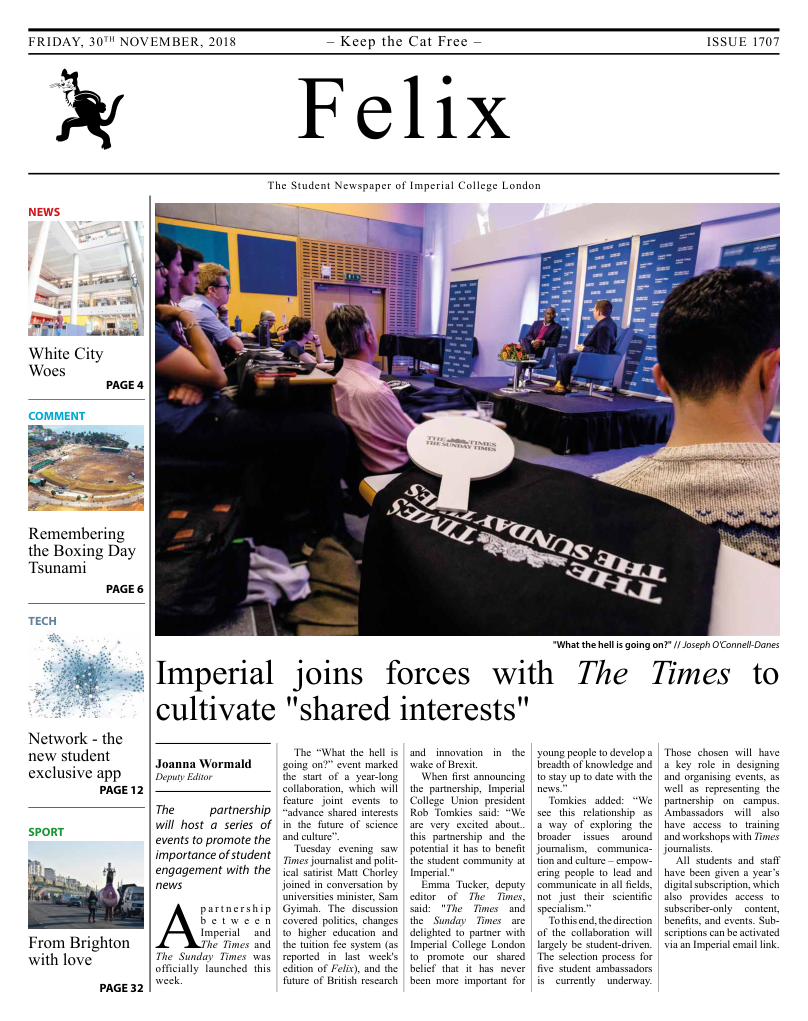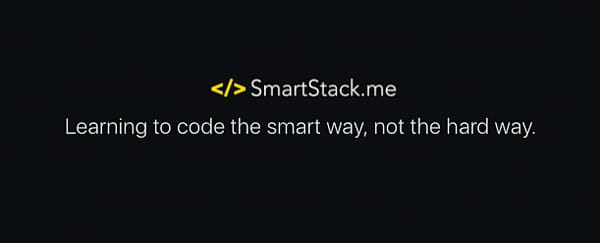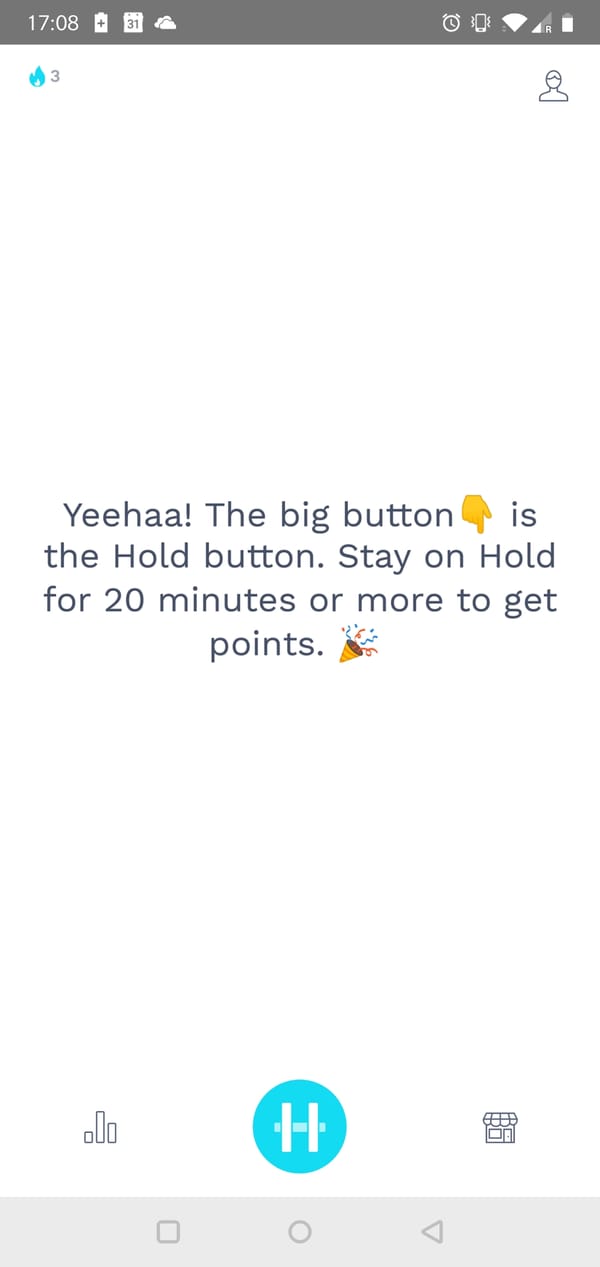Network - the new student exclusive application that is rethinking the university experience
The student exclusive application that is rethinking the university experience

Network, a student exclusive application founded by Erald Veliaj, launched this summer at Goldsmiths, University of London and has now opened up for Imperial. The application automatically connects students based on information such as the course they’re taking, what country they’re from and who share common intentions, such as finding other students to rent a place with.
“Network is rethinking the university experience,” Veliaj said. “Moving to university you automatically become part of a community, but that community is not visible to you right away. You have to go out and figure it yourself. In the majority of cases, you find yourself missing out on meeting people or doing things that you are really interested in because for one reason or another you are concentrating on the wrong part. Network provides students with the tools to view and better understand the community they are becoming part of as soon as they join Imperial, and that instantly opens up a whole new set of possibilities.”
An application like Network will greatly improve students’ social experiences. Recent reports show that the number of students having an unpleasant university experience has been on the rise. “The problem is much broader than just the university experience. There is a vulnerability in our society,” Veliaj said. “We are empowering students to interact freely with one another and to really focus on other students around them with similar intentions and interests, increasing the chances of teaming up regarding university coursework or personal projects, and creating meaningful relationships. Instead of watching artificial content from celebrities that is irrelevant to the student’s reality and moreover has a negative effect on their wellbeing, students can connect and create a peer support system, leading to a bright professional future.”
“Network is designed in such way that allows students to become part of the whole community unlike traditional applications that only allow users to start with a small number of connections and limit their reach at some point. Content, connections and possibilities are moving with time and change,” Veliaj said. “Even though we have now opened up to Imperial and Goldsmiths, Imperial’s network will remain closed. Students will only be able to interact with other students and view content from their university, allowing them to feel comfortable expressing themselves.”
It is exclusivity this that makes Network special. “Keeping it exclusive allows us to develop a product that students love,” Veliaj said. “We are not putting numbers before doing the right thing for the students that use our service and this is a really good time to do that because embedding that culture really early in our business is extremely important. In the end it really comes down to values and we are focusing on keeping Network valuable for students. We will continue to innovate and deliver great services for students and we know that if we listen to their feedback and provide them with things they love, they’ll use our services.”
Despite being exclusive, Network is also setting new industry standards, rethinking the way students interact with each other and how content is organised. First students have to set up their account by completing basic information about themselves such as the course they are taking, what year they are in, if they are living in the university accommodation or not and the country they are from. Once they complete the setup they are automatically connected with students in their class, in the same course, in the same department and from the same country. Students can also look up other students that are looking for a place to rent or that are renting a place out.

“Accommodation is a huge problem in London and we are thinking of new ways to tackle this problem,” Veliaj said. “It is quite hard to find other students to share a place with and we want to change that. Not only should students be able to easily find other students to share a place with, but they should also find students from the same department or with similar intentions. That way students don’t have to live with people they don’t like, and that would change the student social experience tremendously. As a student myself I am aware of the university regulations. When I stopped living in the university accommodation halls I still had no other option than to pay for the whole term since I wasn’t able to find another student to take my place.”
Looking at the big picture there are so many problems Network could solve. One of the problems it tackles is dating. “If we think about dating, it all starts with two people introducing themselves as friends. Once we give students the ability to get to know other students with similar interests and intentions, it’s up to them to decide if that someone should be their date or not, it’s very simple and it happens naturally, ” Veliaj said. “It doesn’t have to be this vulgar application aimed only at dating.”
“Fundamentally we are trying to achieve two things,“ Veliaj said. “The first one is encouraging students to do more activities together, either a group of students planning something together or one student joining an activity organised by someone else. If someone is partying or playing tennis, other students should be given the chance to join them. Traditional applications do not support this because by the time the other person sees that someone is having a party, chances are that the party is already over or too far away to get there in time. We have the luxury to make this happen because university campuses are small and centralised and it’s the perfect place for students to interact with one another. The second thing we are trying to achieve is to become the main hub for students. Helping students cooperate with one another regarding different projects will lead to the creation of a new platform where the new influencers will arise. Myself being a Creative Computing student I envision that a growing self-supporting community would be the perfect place for new upcoming artists and professional development.”
Connecting students with their peers opens up a whole new set of functionality that wouldn’t be possible otherwise. “Our team approaches problems with almost a blank canvas,” Veliaj said. “Having that open mindedness and willingness to approach problems from different angles is really important. We’ve not only managed to build a product, but have also laid an underlying philosophy that runs directly counter to traditional applications. We are trying to push students away from the distorted reality of competing with their friends for likes and attention and really helping them build deeper relationships.”








